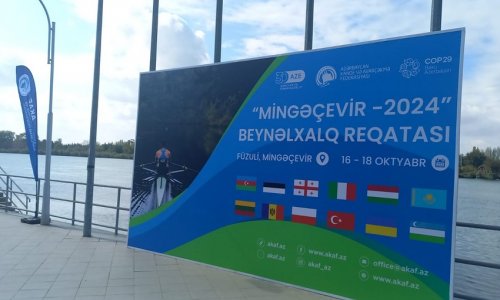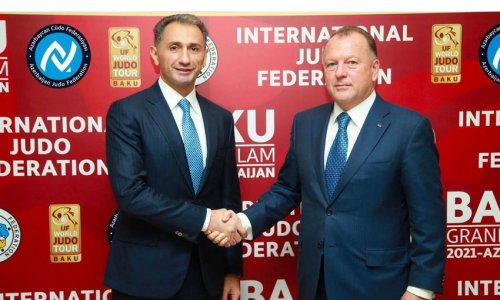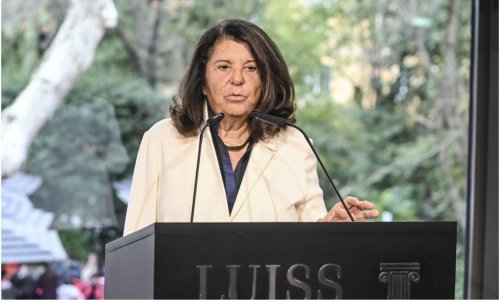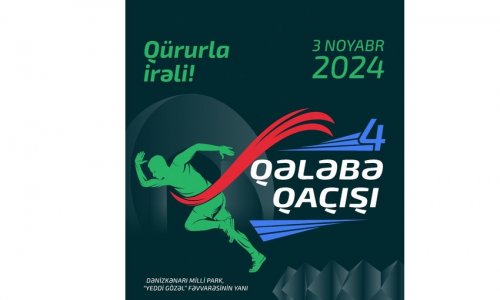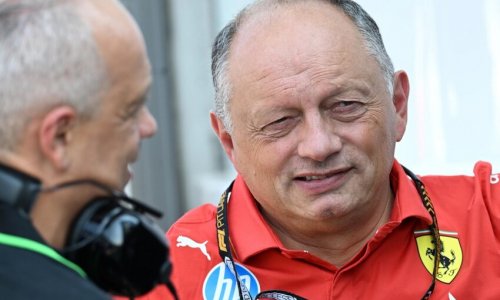Follow us !
World Cup 2014: from Spain to Algeria via England – ranking the 32 finalists
Sport
15:16 | 21.11.2013
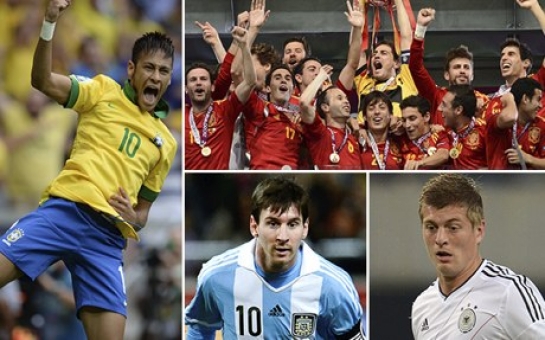
World Cup 2014: from Spain to Algeria via England – ranking the 32 finalists
Uruguay become the 32nd and last team to qualify for the 2014 World Cup late on Wednesday night so we asked Jonathan Wilson and Michael Cox to rate the finalists with only 15 days to go before the draw in Bahia. They both ranked the qualifying teams and gave them a score from 32 to 1.Here is their combined list (where teams have been given the same amount of points the team with the highest single vote will be given the highest ranking).Will Spain really claim a fourth consecutive title – in South America? Are France better than Belgium? And are Australia really not better than 28th?1) Spain (32+30 = 62pts)Spain's reputation has suffered because of their Confederations Cup defeat, their poor record in friendlies and an underwhelming qualification campaign, but in stark contrast to their previous reputation, they now guarantee good performances at major tournaments. They're weaker than 2010 in defence and upfront, but Vicente Del Bosque's midfield can still control matches like no-one else. MC2) Brazil (31+31 = 62pts)There are still doubts over the defence, particularly the space left behind the full-backs, and coping with the pressure of playing at home in front of an expectant (and perhaps protesting) public will not be easy, but the evidence of the Confederations Cup was that Luiz Felipe Scolari is beginning to shape a team that could lift a sixth title. JW3) Argentina (29+32 = 61pts)After years of trying to ram as much of their attacking talent as possible into the team, Argentina at last have, in Alejandro Sabella, a coach who is clear-sighted and ruthless enough to cull attacking stars and provide a platform for Lionel Messi and then fill in the gaps. JW4) Germany (30 + 29 = 59pts)Jogi Löw's squad becomes more impressive with every passing year. With attacking midfielders like Marco Reus, Toni Kroos, Mario Götze, Julian Draxler, Mesut Özil, Lukas Podolski, Thomas Müller and André Schürrle, Löw has experimented without a centre-forward. On paper, Germany have improved at the back, but Sweden scored seven goals against them in two matches. MC5) Italy (28 + 27 = 55pts)Cesare Prandelli can depend upon fine performances from his Juventus-inspired backline, and from reliable midfielders such as Andrea Pirlo, Daniele De Rossi and Thiago Motta. Upfront is the unpredictable area: if Mario Balotelli behaves, Giuseppe Rossi stays clear of injury, Stephan El Shaarawy rediscovers last season's form and Daniel Pablo Osvaldo gets back to his best, Italy are contenders. MC6) Holland (25 + 28 = 53pts)Louis van Gaal's side have received little attention, but a 17-match unbeaten run suggests he's found balance and harmony, not always present in the Dutch squad. Robin van Persie, Wesley Sneijder and Arjen Robben remain key players but youngsters like Kevin Strootman and Jeremain Lens make this a more typically Dutch side than in 2010. MC7) Portugal (27 + 23 = 50pts)Only eliminated by eventual winners and fierce rivals Spain in the past two major tournaments, Portugal's situation has become a cliché: a solid defence, a technically impressive midfield, talented wingers but no top-class striker. Paulo Bento's gameplan is about getting the best from Cristiano Ronaldo – in the 3-2 win over Sweden, Hugo Almeida and Nani were essentially permanent decoys. MC8. Colombia (23 + 26 = 49pts)José Pekerman, the ghosts of Argentina's 2006 exit to Germany not yet laid to rest, has created a fluid and attacking Colombia side based around a dynamic and creative midfield and the profound attacking abilities of Radamel Falcao. With Jackson Martínez, James Rodríguez and Teó Gutiérrez, creativity shouldn't be an issue; the defence is rather more suspect. JW9. Uruguay (24 + 25 = 49pts)Uruguay have two great assets: the front pairing of Luis Suárez and Edinson Cavani and the management of Oscar Washington Tabárez. He walks with a stick now, and age is catching up with him, but el Maestro remains one of the most astute coaches in the world, a master of shutting games down. JW10. France (26 + 22 = 48pts)The emergence of Paul Pogba and Raphaël Varane, plus late developers such as Mathieu Valbuena, Laurent Koscielny and Olivier Giroud, means Didier Deschamps has a truly excellent squad. But problems with squad harmony remain, and Deschamps has struggled to find a cohesive starting XI. Likely to be handed a tough draw, success on home soil in 2016 remains more realistic. MC11. Belgium (20 + 24 = 44pts)That they have an extraordinary generation of players is not is dispute. What is less certain is how they will perform under the pressure of a tournament environment, particularly given the lack of experience of their coach, Marc Wilmots. As such, they remain something of an unknown quantity: they may be very good, but they may not. JW12. Chile (22 + 20 = 42pts)Few nations have such a clear philosophy as Chile, and they are thriving on it. The hard-pressing, dynamic style will make them highly watchable and will unsettle a lot of sides more used to the sedate pace of international football. Alexis Sánchez and Arturo Vidal add a dash of genuine quality to the general energy. JW13. England (21+21 = 42pts)Uncertainty over the goalkeeper, uncertainty over the centre of defence and no goals in their last two games; any feel-good factor over qualification didn't last long. Not since 1982 have England entered a World Cup with fewer expectations, but in Wayne Rooney, Daniel Sturridge, Jack Wilshere and Ashley Cole there is at least the ghost of a decent side. JW14. Croatia (19+17 = 36pts)There are questions over the back of midfield and the full-back positions, and Mario Mandzukic is likely to be suspended for the first two group games, but this is a Croatia side studded with quality. Had it not been for Igor Stimac's disastrous reign, they may have challenged Belgium for automatic qualification; much depends now on whether Niko Kovac can restore a sense of stability. JW15. USA (12+19 = 31pts)Jürgen Klinsmann has the USA playing some decent football, but away defeats against Jamaica, Costa Rica and Honduras suggests the side lacks confidence, and there hasn't been a significant improvement since the 2010 tournament, when the USA reached the second round. Their progress is heavily dependent upon a good draw. MC16. Russia (14+16 = 30pts)As one Russian columnist put it, after the champagne football of Guus Hiddink's day, Russia are now playing whiskey football, based on the earthy qualities of pragmatism and a solid defence. Sergey Ignashevich and Vassily Berzutsky, once the weak spot, have emerged as strengths, and the goalkeeper Igor Akinfeev is hinting he is at last back to form after his broken leg. JW17. Japan (18+11 = 29pts)Few sides have such technically gifted midfielders: Makoto Hasebe and Yasuhito Endo control the centre, while Shinji Kagawa and Keisuke Honda provide creativity. There's also constant overlapping from Yuto Nagatomo and Atusto Uchida, but Japan suffer from a lack of raw quality in both penalty boxes – something former Serie A title winner Alberto Zaccheroni's clever tactics can't disguise. MC17. Switzerland (11+18 = 29pts)Surprisingly ranked seventh in the world despite falling at the group stage in 2010, and failing to reach Euro 2012, Napoli's Gokhan Inler is Switzerland's star player. There's also a promising generation emerging: Granit Xhaka, Valentin Stocker, Pajtim Kasami and Xherdan Shaqiri are all highly talented youngsters, but Switzerland are the weakest of the seeded sides. MC19. Bosnia (17+12 = 29pts)The only debutants at the tournament combine a rich array of attacking talent with defensive flaws. Edin Dzeko is a fine leader of the line and Miralem Pjanic has developed over the past year into a player who can control games from the flank, but a soft centre is likely to hold them back. JW20. Nigeria (15+14 = 29pts)Steven Keshi is a magnificently thick-skinned coach, who has somehow sailed through being unpaid for seven months and having federation members openly plotting against him with his dignity intact. Emmanuel Emenike is a fine, explosive forward and Mikel John Obi enjoys a freer role too that he plays at Chelsea, but politics could still get in the way. JW21. Ghana (13+13 = 26pts)With Asamoah Gyan, Kevin-Prince Boateng and Dede Ayew, Ghana have the players to repeat the quarter-final placing of 2010, but there remains always a question of focus. Too many players have missed too many games on flimsy pretexts to convince that this is a team that has the togetherness and drive to make the most of its talent. JW22. Ivory Coast (10+15 = 25pts)This golden generation has been drinking in last-chance saloon for so long that last orders have been called and they're trying to persuade a bouncer to let them into a mediocre final-hope club. After difficult groups in 2006 and 2010, Didier Drogba and co probably deserve a kinder draw this time, but there is little in Sabri Lamouchi's coaching to inspire confidence. JW23. Mexico (16+7 = 23pts)Consistent success at youth level means Mexico should be much stronger – but a run of two victories in 10 qualification matches was nearly fatal. Miguel Herrera, Mexico's fourth coach of 2013 and effectively on loan from Club America, picked a domestic-based squad for the comprehensive play-off victory over New Zealand, but it remains a shambolic situation. MC24. Ecuador (9+10 = 19pts)The death of Chucho Benitez continues to reverberate, and Ecuador showed remarkable mental strength to complete their qualification despite their shock and grief. Antonio Valencia captains from the right side of midfield, while Felipe Caicedo, now at Lokomotiv Moscow, is a rather better forward than he showed at Manchester City. JW25. Cameroon (8+8 = 16pts)If Samuel Eto'o's improvement continues, if Volker Finke really has instilled a togetherness and tactical shape, if there are no disputes over money or bonuses, then perhaps Cameroon could startle the world. But those are three big ifs, and nothing in the history of the last decade suggests all three will be answered positively come June. JW26. Greece (5+9 = 14pts)We've been here before – Greece finished second place in their qualification group after 2-1, 2-0, 1-0, 1-0, 1-0, 1-0, 1-0 and 2-0 victories, although they failed to beat Bosnia, suggesting they'll struggle against genuinely top-class sides. The weakest of the European contingent, Greece are unlikely to celebrate the 10th anniversary of their Euro 2004 triumph in style. MC27. Australia (6 +5 = 11pts)There are fewer star names than in previous years, and Australia's World Ranking of 57 is somewhat underwhelming considering they were 14th four years ago. But Ange Postecoglou has more authority than Pim Verbeek, having enjoyed great success with Brisbane Roar, and appears to have found a cohesive side, naming the same XI for the final three qualification matches. MC28. South Korea (7+3 = 10pts)Now coached by legendary former sweeper Hong Myung-bo, who won the Bronze Ball in 2002, South Korea are playing good technical football in a 4-2-3-1 formation. The star man is Bayer Leverkusen's talented attacking midfielder Son Heung-min, but it's taken a while for Hong to understand he must build the side around him. MC29. Costa Rica (2+6 = 8pts)Costa Rica might bring some tactical variety to the tournament – Jorge Luis Pinto has played a 5-4-1 formation, which makes Los Ticos difficult to break down. There's are decent attacking weapons – with captain Bryan Ruiz joining pacey duo Joel Campbell and Christian Bolanos on the break, but this side lacks goals. MC30. Iran (4+2 = 6pts)Iran's manager is more famous than any of their players – Carlos Queiroz had a disappointing experience with Portugal in 2010, but is a fine defensive organiser, and it's no surprise Iran conceded just seven goals in 14 qualification matches. Former Osasuna midfielder Javad Nekounam, the captain, is the star man. MC31. Honduras (1 + 4 = 5pts)A simple, unspectacular side likely to play in a 4-4-1-1 formation, Honduras have a decent spine featuring some reliable partnerships, while Jerry Bengtson has been banging in the goals throughout qualifying. They also have the benefit of a coach with World Cup experience – Luis Fernando Suarez led Ecuador to the second round in 2006, before losing to England. MC32. Algeria (3 + 1 = 4pts)After years of playing solid, unadventurous football, Algeria have revealed a more progressive approach under Vahid Halilhodzic, although as the final stage of their play-off victory over Burkina Faso revealed, they remain masters of time-wasting and gamesmanship. Majid Bougherra, tough, committed and occasionally reckless, is a key figure not only as a central defender but as a leader.(theguardian.com)ANN.Az

